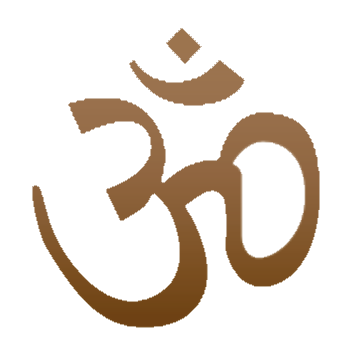
What is Vedanta?
Vedanta is the religion and philosophy lived by a large number of people in the Indian subcontinent. It is a way of life founded on philosophical knowledge and spiritual illumination. In Vedanta, religious practice, philosophical inquiry and mystical awareness are very closely allied. It is a very complete system. It is not founded on the authority of any historical person. It is based on eternal spiritual truths which hold under all circumstances, which underlie and explain all religious doctrines and experiences.
The term Vedanta comes from the Sanskrit word vid – ‘to know’ and Veda means ‘knowledge’. Vedanta is the culmination of knowledge; the theme of Vedanta is wisdom. Vedanta, over the ages, has established itself as the scientific basis of spiritual life by accepting the thoughts and ideas of all religions, and by finding the common theme and harmony in them.
Vedanta means the essence of the Vedas (veda+anta). Although popularly identified with the basic scripture of the Hindus, Vedas are really neither “books” nor essentially “Hindu.” By Vedas is meant the accumulated treasury of spiritual laws discovered by enlightened beings. Vedanta stands for spiritual wisdom that transcends borders defined by religion, culture, race and nationality. It is possible to perceive Vedanta as a spiritual tradition that simultaneously respects and transcends all religions.
Teachers of Vedanta philosophy have grappled with such fundamental questions as how to overcome death, how a being can go beyond all bondages and sufferings, how to attain perfection, and to reach That by knowing which there remains nothing to know; by attaining which there remains nothing more to attain; and by loving which there remains nothing more to love. Therein, they have found Truth eternal.
Vedanta holds that all religions lead to the goal of realising God or Truth. Further, Vedanta reveres all great teachers and prophets, such as Jesus Christ, Buddha, and Sri Krishna, and respects their teachings as the same eternal truth adapted to the needs of different times and peoples.
The Vedanta Centre has as its ideal the lives of Sri Ramakrishna, Sri Sarada Devi and Swami Vivekananda who practiced religion and realised the ultimate goal of life – God.

Universality of Vedanta
Vedanta is the philosophical foundation of Hinduism; but while Hinduism includes aspects of Indian culture, Vedanta is universal in its application and is equally relevant to all countries, all cultures, and all religious backgrounds.
The important insights of Vedanta include the following:
- Each soul is potentially divine and the goal is to manifest the divinity within.
- Stripped of all theological trappings, every spiritual tradition seeks to transcend human limitations to touch the Reality beyond. Everything else in religion is secondary.
- There is only one ultimate Reality, which manifests in various forms, with various attributes, and even as formless, and is known by various names. The Reality beyond is not different from the Reality within.
- Every spiritual tradition has the inherent power to take its practitioners to the supreme consummation of human life. All spiritual paths lead to the same goal.
The practices of Vedanta include prayer, worship, meditation, spiritual study, and selfless service. Vedanta respects all spiritual traditions and encourages everyone to learn from the teachings offered by the prophets and teachers of all religions.

